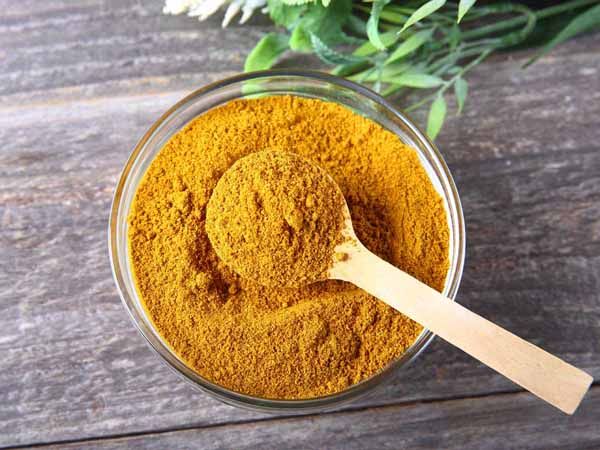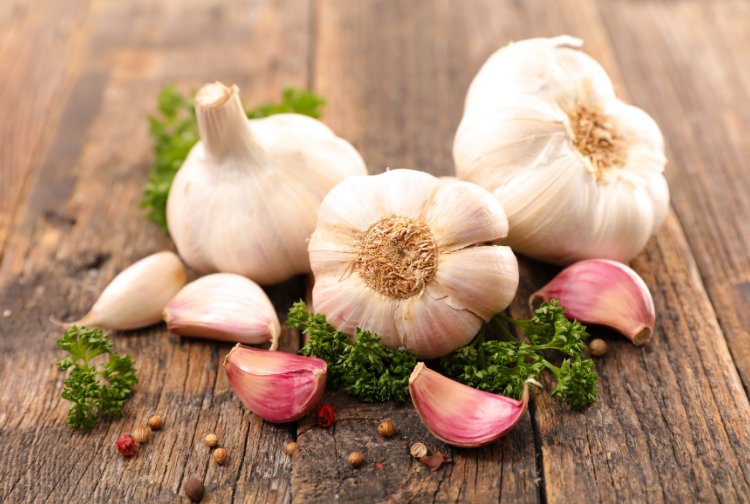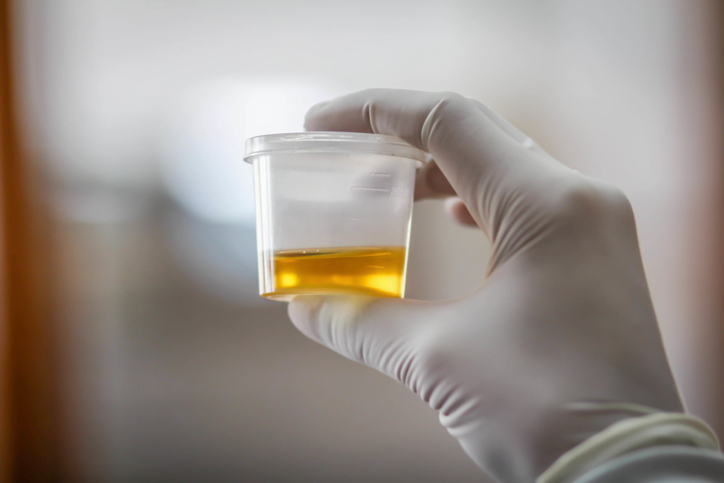Health
Nutrition Facts and Health Benefits of Nutritional Yeast

Nutritional yeast can be described as a yeast deactivated form. It’s used to season foods and provide nutritional supplements. It is a plant-based substitute for cheese, which is one of its most popular uses. You might be hesitant about including fungus into your meals. However, it is responsible for many of our favorite meals and liquids. Digressionary yeast is not intended to cause meals to rise like baker’s yeast. However, it does provide flavor and vital vitamins.
Nutritional Yeast Nutrition Facts
These nutrient facts were provided by the USDA for 16 grams (about 1.5 tablespoons) dietary yeast. You can take Vidalista 20 mg and Kamagra oral jelly for sale pills to address men’s health concerns.
Carbohydrates
Around 1. Five tablespoons of dietary wheat contain five grams of carbohydrates, which include three grams of fibre. This soluble fiber has unique health benefits and is a useful form of soluble fiber known as beta-glucan.
May Promote Healthy Immune System Function
While additional research is needed, many researchers point to yeast-derived beta glucan as an immune booster. You can take Silagra 100 & Fildena 100 mg treating men’s health problems.
Beta-glucan could also stimulate the interest in essential immune gadget cells like macrophages. Animal studies have confirmed that beta-glucan can equip the immune system to prevent anthrax infections. This promising nutrient can be easily supplemented with nutritional yeast.
Fats
Many brands of nutritional yeast can be used fat-unfastened.
Protein
Nutritional yeast contains eight grams of all the essential amino acids in 1.5 tablespoons.
Vitamins and Minerals
Many nutritional yeast products are fortified with B vitamins. These dietary facts are taken from Wegman’s emblem. It contains 600% or more maximum B-vitamins in 16 grams. It also contains one thousand% of the daily fee for vitamin B12. Nutritional yeast contains some calcium, iron, thiamine and potassium.
Health Benefits
Nutrition yeast is a very small amount of nutrients that can fill nutritional gaps and promote good health. These are just a few of the many health benefits that nutritional yeast offers.
Lowers The Risk Of Anaemia
Iron is the most important nutrient for anaemia. Anaemia can also be caused by inadequate folate, or nutrition B12. An injection is a common treatment for a nutritional B12 deficiency. However, it’s also possible to take massive oral doses.
Many manufacturers of nutritional yeast include B12 in their products, which means that they offer more than 500% off the daily fee. B12 is water-soluble so it is unlikely to cause toxic effects even when consumed in large quantities via meals. Many people who are vegan or plant-based have limited resources of B12 so diet can be a key source of this vital nutrient.
Heart Health Supports
Beta-glucan is a type of carbohydrate found within the cell partitions of microorganisms, plants, and fungi. Beta-glucan intakes that are higher than average can have positive cardiovascular effects. They include lower “awful LDL cholesterol” levels and increased “correct cholesterol.”2 Most brands of dietary yeast also contain potassium, which helps to reduce blood strain. Nutritional is a flavor-enhancing seasoning for savory dishes that is low in sodium and healthy for the heart.
Prevents Constipation
According to sixteen grams, nutritional yeast provides 3 grams of fiber. Fiber is essential, but the public doesn’t get enough. Fiber consumption should be at least 25 to 35 grams per day. However, Americans consume less than half that amount.
Fiber regulates bowel movements.5 By using nutritional yeast in the area of cheese or other seasonings, you can work closer towards achieving ok fiber intakes.
Diabetes Management
Fiber is important for digestion and helps to prevent blood sugar spikes. Numerous studies have shown that low-fiber diets increase the risk of developing diabetes.
Fiber can slow down digestion, increase satiety, and control starvation and the glycemic response of food. Fiber is not only beneficial in preventing diabetes but also helps people with diabetes maintain their appropriate levels. You can add more fiber to your diet by using nutritional yeast.
Allergies
Hypersensitivity to yeast and mold should be reported to an allergist. Overgrowth can also occur after antibiotic treatment or when the immune system is compromised.
Many foods contain yeast, so anyone with yeast allergies may need to avoid certain items such as baked goods, yeast alcoholic liquids and marmite/vegemite.
Negative Effects
Nutrition is not active and unlikely to cause any adverse effects, unlike brewer’s yeast. If you have IBS or suffer from migraines, you may need to be aware of your symptoms and be cautious about trying new foods, such as nutritional.
Varieties
You can buy nutritional yeast in granules or powder form. Eight Make sure to check the nutrition yeast product’s label for added nutrients and minerals.
When It’s At Its Best
Nutritional yeast can be found in supermarkets year-round with various seasonings. Sometimes, it is sold out from a bulk food bin.
Food Safety and Storage
Even though it is a dry product, dietary yeast will last longer in the fridge once it has been opened. It should be kept in an airtight container and the expiration date printed on the label must be remembered.
How to Prepare
Nutrition yeast can often be described as creamy or nutty in taste. It is usually used in savory dishes such as pasta, roasted meats and vegetables, as well as salads.
There are many interesting ways you can use diet:
- Use it as popcorn seasoning
- It can be used in place of Parmesan cheese in pasta
- You can make a vegan cheese sauce.
- Make soup with it
- It can be added to scrambled eggs
- Sprinkle it on top of the pinnacle garlic bread
Health
Nourish Your Life Today And Expand Your Life Span in 2024

In a world that often demands more than it gives, finding ways to nourish your life can lead to a more fulfilling and balanced existence. Nourishment goes beyond the food we eat; it encompasses our mental, emotional, and physical well-being. To truly nourish your life, it’s essential to cultivate habits and practices that promote overall health and happiness. This comprehensive guide will explore various strategies to help you nourish your life in every aspect.
1. Understanding True Nourishment
What Does It Mean to Nourish Your Life?
Nourishing your life means providing the necessary sustenance for your body, mind, and soul to thrive. It involves adopting a holistic approach that includes healthy eating, mental well-being, emotional balance, and physical fitness.
The Importance of Holistic Well-being
Holistic well-being recognizes the interconnectedness of the different aspects of our lives. By addressing all areas—physical, mental, emotional, and spiritual—we can achieve a state of harmony and balance.
2. Nourishing Your Body
Balanced Nutrition
Eating a balanced diet rich in fruits, vegetables, whole grains, lean proteins, and healthy fats is fundamental to nourishing your body. These foods provide essential nutrients that support overall health and vitality.
Hydration
Staying hydrated is crucial for bodily functions, including digestion, circulation, and temperature regulation. Aim to drink at least 8 glasses of water daily and adjust based on your activity level and environment.
Regular Exercise
Incorporating regular physical activity into your routine helps maintain a healthy weight, boosts energy levels, and improves mood. Choose activities you enjoy, such as walking, cycling, swimming, or yoga.
Adequate Sleep
Quality sleep is essential for physical health and cognitive function. Establish a consistent sleep routine and aim for 7-9 hours of sleep per night to ensure your body can rest and repair.
3. Nourishing Your Mind
Continuous Learning
Keeping your mind active through continuous learning helps maintain cognitive function and mental agility. Engage in activities like reading, puzzles, learning a new skill, or taking up a hobby.
Mindfulness and Meditation
Practicing mindfulness and meditation can reduce stress, enhance focus, and promote emotional stability. Start with a few minutes each day and gradually increase the duration as you become more comfortable.
Mental Health Support
Seeking support for mental health issues is crucial. Therapy, counseling, and support groups can provide valuable resources for managing stress, anxiety, depression, and other mental health conditions.
4. Nourishing Your Emotional Health
Building Resilience
Resilience is the ability to bounce back from adversity. Cultivate resilience by developing a positive outlook, practicing self-compassion, and maintaining a strong support network.
Emotional Expression
Expressing emotions in a healthy way is vital for emotional health. Journaling, talking to a friend, or engaging in creative activities like art or music can help process and express feelings.
Healthy Relationships
Building and maintaining healthy relationships contribute significantly to emotional well-being. Invest time in nurturing connections with family, friends, and loved ones.
5. Nourishing Your Spirit
Finding Purpose and Meaning
Having a sense of purpose and meaning in life is essential for spiritual nourishment. This can come from work, hobbies, volunteering, or other activities that provide a sense of fulfillment.
Spiritual Practices
Engaging in spiritual practices, whether through religion, meditation, or personal reflection, can enhance your sense of connection and inner peace.
Nature Connection
Spending time in nature can be incredibly grounding and rejuvenating. Activities like hiking, gardening, or simply sitting in a park can foster a deeper connection with the natural world.
6. Practical Steps to Nourish Your Life
Setting Goals
Set realistic and achievable goals that align with your values and passions. Having clear goals gives direction and purpose, motivating you to make positive changes.
Creating a Routine
Establishing a daily routine that includes time for self-care, work, and leisure helps create balance. Consistency in your routine can lead to better habits and improved well-being.
Self-Care Practices
Self-care involves taking deliberate actions to care for your physical, mental, and emotional health. This could include activities like taking a relaxing bath, reading a book, or practicing yoga.
7. Overcoming Barriers to Nourishment
Time Management
One of the biggest challenges to nourishing your life is finding the time. Prioritize your well-being by scheduling time for activities that nourish you, and learn to say no to commitments that drain your energy.
Staying Motivated
Maintaining motivation can be difficult. Surround yourself with supportive people, track your progress, and celebrate small victories to stay motivated on your journey.
Access to Resources
Access to resources like healthy food, fitness facilities, and mental health support can be a barrier. Explore community resources, online programs, and affordable options to overcome these challenges.
8. The Benefits of a Nourished Life
Improved Physical Health
Adopting nourishing habits can lead to better physical health, including increased energy levels, improved immune function, and reduced risk of chronic diseases.
Enhanced Mental Clarity
Nourishing your mind through continuous learning and mental health support can enhance cognitive function, memory, and mental clarity.
Greater Emotional Stability
Practicing emotional expression and building resilience can lead to greater emotional stability, reducing stress and improving overall mood.
Deeper Spiritual Connection
Engaging in spiritual practices and finding purpose can lead to a deeper sense of connection and inner peace, enriching your life experience.
Conclusion
Nourishing your life is an ongoing journey that requires intentional effort and commitment. By addressing all aspects of well-being—physical, mental, emotional, and spiritual—you can achieve a balanced and fulfilling life. Remember, small, consistent changes can lead to significant improvements in your overall well-being.
FAQs
1. How can I start incorporating mindfulness into my daily routine?
Begin with short sessions of mindfulness meditation, focusing on your breath and being present in the moment. Gradually increase the duration and try to incorporate mindfulness into everyday activities like eating and walking.
2. What are some affordable ways to improve personal well-being?
Affordable ways to improve well-being include practicing yoga at home, using free health apps, engaging in outdoor activities, and connecting with supportive communities online or locally.
3. How does wearable technology benefit personal well-being?
Wearable technology helps track physical activity, monitor sleep patterns, and provide health insights, enabling individuals to make informed decisions about their well-being and maintain healthy habits.
4. What are some effective stress management techniques?
Effective stress management techniques include mindfulness meditation, deep breathing exercises, physical activity, journaling, and spending time in nature.
5. How can I maintain a work-life balance?
Maintain a work-life balance by setting boundaries, prioritizing tasks, taking regular breaks, and ensuring time for personal activities and relaxation. Flexible working conditions and ergonomic workspaces also help in achieving this balance.
Health
How Europeans can use surrogacy in Ukraine to find their happiness

Surrogacy has emerged as a viable option for individuals and couples across the globe facing challenges with conception or pregnancy. Among the countries offering surrogacy services, Ukraine has gained prominence as a popular destination, attracting prospective parents from Europe and beyond. In this comprehensive guide, we delve into the landscape of surrogacy in Ukraine, providing insights, considerations, and essential information for European individuals and couples exploring this pathway to parenthood.
The Legal Landscape of Surrogacy
One of the primary draws of surrogacy in Ukraine for European intended parents is its favorable legal framework. Ukrainian legislation permits surrogacy arrangements, providing a clear legal pathway for establishing parental rights. The country’s laws prioritize the rights of intended parents, ensuring that they are recognized as the legal parents of the child born through surrogacy, with the surrogate and her husband (if applicable) relinquishing all parental rights.

Medical Expertise and Infrastructure
Ukraine boasts a robust medical infrastructure and a wealth of fertility clinics with advanced technologies and experienced professionals specializing in assisted reproductive techniques. Prospective parents can access comprehensive medical evaluations, fertility treatments, and surrogacy services tailored to their specific needs.
Surrogacy in Ukraine: Affordability and Accessibility
Compared to surrogacy options in other European countries or the United States, surrogacy in Ukraine is often more affordable, making it an attractive option for European individuals and couples seeking cost-effective alternatives. The relatively lower cost does not compromise the quality of medical care or legal protections, offering a compelling value proposition for prospective parents.
Ethical Considerations
While Ukraine provides a conducive legal and medical environment for surrogacy, prospective parents should approach the process with ethical considerations in mind. It is essential to prioritize the well-being and rights of all parties involved, including the surrogate, egg donor (if applicable), and the child. Open communication, transparency, and respect for the autonomy and dignity of the surrogate are paramount throughout the surrogacy journey.
Cultural and Logistical Factors of Surrogacy
European intended parents embarking on the surrogacy journey in Ukraine may encounter cultural and logistical differences. Understanding and navigating these nuances, including language barriers, cultural norms, and logistical arrangements, are integral to ensuring a smooth and successful surrogacy experience.
Surrogacy in Ukraine offers European individuals and couples a promising pathway to parenthood, combining legal clarity, medical expertise, affordability, and accessibility. By familiarizing themselves with the legal framework, medical infrastructure, ethical considerations, and cultural aspects of surrogacy in Ukraine, prospective parents can make informed decisions and embark on their journey to building a family with confidence and peace of mind.
Health
Immobilization For Knee Hurts When Straightened

Knee hurts when straightened or Knee immobilization is a common intervention for patients with traumatic injuries. However, it usually leads to biomechanical/morphological disturbances of articular tissues. These changes may contribute to declining kinetic friction-related quality of arthrokinematics; however, this phenomenon has not been analyzed in vivo and remains unrecognized. Thus, the aim of the present study is to investigate the effect of immobilization and subsequent re-mobilization on the quality of arthrokinematics within the patellofemoral joint, analyzed by vibroarthrography (VAG).
List some most Common Causes Of Knee Pain;
Knee pain can arise from a number of conditions. It is essential to understand where the knee pain is coming from. This will allow for the best treatment plan. The most common causes of knee pain include:
Meniscus Injury
The meniscus is a c-shaped shock absorber inserted between the thigh bone (femur) and the tibia (tibia). It is composed of fibrocartilage and serves to absorb the forces of everyday life in addition to providing stability to the knee. There are two menisci on each knee: one on the inside (medial) and one on the outside (lateral). Meniscus tears are the most common injury. They can be degenerative or due to acute injuries. There are many different types of knee meniscal tears, which include radial, horizontal, incomplete, flap, buck handle, and complex. Meniscal tears can cause swelling and dysfunction. Meniscus tears can also cause pain in the knee when you bend or straighten it.
Tendon Injury
Tendons are strong pieces of connective tissue that connect muscles to bones. It serves to stabilize and move the given joint. There are many tendons in the knee which include the patellar and distal quadriceps tendons. Tendons are prone to injury from overuse, muscle imbalances, trauma, medications such as certain antibiotics, and medical conditions.
Here are a Few Other Conditions;
Pain when bending or straightening your knee can put you out of action for a weekend or months at a time. There are many different causes of knee pain. You must identify the specific cause of your pain so that you can develop a particular plan of treatment. 5 main conditions can affect how the knee functions, such as difficulty bending or straightening the knee:
Runner’s Knee
Runner’s knee is a clinical condition that involves pain around or behind the kneecap, also known as the patella. This is usually an overuse injury. This does not apply exclusively to runners and can also apply to non-athletes. Knee pain can stem from several different conditions, including loss of cartilage behind the knee (patellofemoral syndrome), poor patellar tracking, iliotibial band (ITB) syndrome, and quadriceps weakness.
Jumper’s Knee
Jumper’s knee is an inflammation of the patellar tendon. It is a very common overuse disorder in athletes who participate in sports that require jumping, such as volleyball and basketball. The prevalence varies but can be as high as 22.8% in elite athletes. The pain is typically located on or just below the knee cap. Risk factors for a jumper’s knee include body weight, leg length differences, arch height and quadriceps, and hamstring flexibility. It also causes a sharp stabbing pain in knee comes and goes.
Baker’s Cyst
A Baker’s cyst is a fluid-filled sac located on the back of the knee. Its size can vary from small to large, creating tightness and a bulge in the back of the knee. Most importantly, it’s a sign that you have a problem that deserves attention. A Baker’s cyst is a buildup of fluid in the knee due to an underlying injury. Examples of problems that can cause a Baker’s cyst to include osteoarthritis, meniscal tears, ligament tears, instability, and gout.
Home Remedies for Pain;
If your knee pain is mild, home remedies might offer relief. Here’s what you can do for knee hurts when straightened:
Massage
During a massage, the therapist uses their hands to apply pressure to your muscles, tendons, and ligaments. This can help relieve and manage knee pain. Consider sports massage if your knee pain is caused by sports or overuse. Sports massage is used to treat athletic injuries. You can also try:
Swedish massage
Trigger point massage
Deep tissue massage
Knee Exercises
Knee exercises can help manage knee pain. This includes strengthening exercises that target the muscles that support your knee. When these muscles are healthy and strong, less stress is placed on your knee. Knee stretching is also important. Stretching reduces tension in the surrounding muscles, thereby reducing pressure on the knee joint. Make sure you move slowly. If an exercise causes more pain, stop doing it immediately.
Change Your Activity
Pay attention to how your knees feel during different activities. If a certain movement hurts your knees, avoid it until you feel better. You can also limit movement or do low-impact activities instead. Low-impact activities put less stress on your joints. Examples include cycling, swimming, water aerobics, and walking.
RICE
The RICE method is a treatment for minor muscle injuries, including those that involve the knee. “RICE” is an acronym that stands for;
Rest and avoid placing weight on your knee. This will help the surrounding muscles heal.
Ice to alleviate swelling and pain. Wrap ice in a plastic bag or clean cloth, and then apply to the affected area 20 minutes at a time, multiple times a day.
Compress by wrapping your knee with an elastic bandage, which will help reduce swelling. Make sure the bandage is snug but not tight.
Elevate your knee by placing it higher than your heart. Do this as much as possible to alleviate the swelling.
OTC medication
Consider using nonsteroidal anti-inflammatory drugs (NSAIDs) to reduce pain and swelling. These medications are over-the-counter (OTC), so you don’t need a prescription. Common NSAIDs include ibuprofen (Advil) and naproxen (Aleve). Always follow dosage and frequency instructions unless directed by your doctor.
Here is the Medical Treatment;
The best treatment for knee pain while bending depends on the cause. A doctor might recommend:
Immobilization
If your knee pain is caused by an injury, your doctor may have you wear a brace or cast. This will protect your knee and prevent you from moving it, help relieve pain and allow for healing.
Surgery
If your condition does not improve with non-surgical treatment, you may need surgery. In general, surgery is only required in severe cases. There are many types of surgery used for knee problems. Here are some examples:
Anterior cruciate ligament (ACL) reconstruction, is a surgery to repair a torn ACL.
Meniscectomy or meniscus repair, to treat a torn meniscus.
Total knee replacement.
Tibial tubercle transfer is a procedure to improve knee stability.
Depending on the cause of your pain, treatment may include a combination of therapies such as rest, medication, physical therapy, and knee braces. In some cases, surgery may be necessary. See your doctor if you experience frequent, persistent, or worsening outer knee pain, especially if it doesn’t improve after a few days of rest or if it interferes with your usual activities. Seek medical attention immediately if you are unable to put weight on your knee or have severe pain, especially if it was caused by a fall, sports injury, or accident.
Physical Therapy
A physical therapist can show you specific exercises for your condition. These exercises are designed to improve strength, mobility, and flexibility in your knee.
Orthotics
Orthopedic insoles are shoe inserts that stabilize the ankle and foot. They can relieve pain by reducing pressure on the knee. Depending on your condition, you can buy a brace at a pharmacy. Alternatively, the doctor can design a custom shoe insole.

 Others10 months ago
Others10 months agoDavid T Bolno: Why Giving Back To The Community Is So Crucial

 Travel10 months ago
Travel10 months agoPractical And Essential Car Interior Accessories To Add Comfort And Convenience To Your Drive

 Travel10 months ago
Travel10 months agoBusiness Visa for CANADA

 Business10 months ago
Business10 months agoTop Reasons Why you Need to Consider Outsourcing Real Estate Photo Editing

 Health10 months ago
Health10 months agoGarlic Is The Best Vegetable To Treat Heart Problems

 Business10 months ago
Business10 months agoDead And Co Setlist What They Played At The Gorge Amphitheatre

 Fashion10 months ago
Fashion10 months agoTips For Choosing The Right For Engagement Diamond Rings

 Tech10 months ago
Tech10 months agoThe Best Way to Never Get Lost: Buy Wayfinding Signs!






